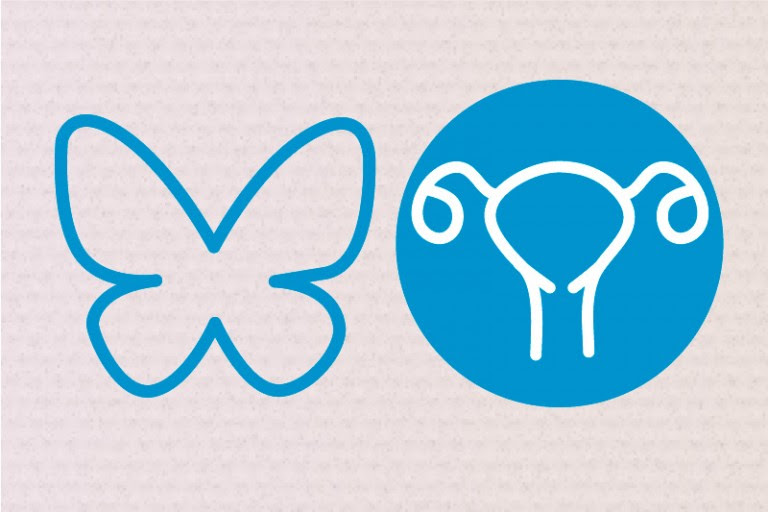The thyroid gland is the master regulator in the body. One of the systems the thyroid gland regulates in women is the menstrual cycle. Thyroid hormones are part of the endocrine system that regulate the timing of ovulation (the egg being released from the ovary). This is a complex system of events. However, if a woman is diagnosed with hypothyroid (low thyroid hormones), then this could interfere with her ovulation and thus impair her ability to conceive.
The gold standard for determining if a patient has a thyroid disorder is testing TSH. When a patient presents to our clinic with concerns about hormone imbalance, fatigue, anxiety or others related to the endocrine system, we will often check the active hormones as well. A well-rounded thyroid panel consists of: TSH (Thyroid Stimulating Hormone), Free T4, Free T3, TPO (Thyroid Peroxidase Antibody), and TGA (Thyroglobulin Antibody). There are other markers that can be ordered, however these 5 parameters give us a comprehensive overview of the patient’s thyroid function.
When addressing fertility concerns and other hormonal imbalances, the naturopathic physicians at Amber Wellness Group will look at your thyroid numbers with a fine-toothed comb. Many patients present to their provider every day with signs and symptoms of hypothyroid, yet their lab values are within the normal range. What we do is assess lab values for the normal range and then go one step further, looking at an optimal range for that particular marker. The optimal range for most lab values is assessed between the 40th and 60th percentile.
The normal range for TSH is approximately 0.4 to 4.0 – Ideally, TSH is between 1.00 and 2.00 mIU/L and no higher than 2.5 mIU/L when trying to conceive. The normal range for Free T4 is 0.8 to 2.8 ng/dL and Free T3 is 2.3 to 4.2 pg/mL. The optimal range for the free hormones for Free T4 is 1.8 ng/dL and for Free T3 is 3.3 pg/mL. Thyroid antibodies should be as low as possible indicating the immune system is not overreacting and attacking the thyroid gland.
Let’s step back and look at the other factors in the endocrine system. The interconnection between the thyroid, ovaries, and adrenal glands is complex. The pituitary gland houses the stimulating hormones for each of the glands that produce hormones. The stimulating hormones in the pituitary we will look at are: ACTH which stimulates the adrenals to produce cortisol, TSH which stimulates the thyroid to produce Free T4, and both FSH and LH which stimulates the ovaries to produce the sex hormones estrogen and progesterone. When there is an overproduction or underproduction of any of the stimulating hormones in the pituitary, then there is a possibility of hormone dysregulation in one of the other endocrine systems. For instance, if you are under high stress and producing a lot of cortisol, then the ACTH is affected. If the ACTH is reacting to a chronic stress situation, this imbalance and chronic reactivity will impact the other hormone pathways, contributing to the hormone dysregulation. In order to conceive and carry a full-term pregnancy, the hormones have to stay in balance and maintain homeostasis.
There are some simple things to do to improve your thyroid function and your fertility.
- Find a knowledgeable health care provider who will order a complete thyroid work-up.
- Eat a well-rounded diet high in fruits or vegetables. The thyroid requires minerals in order to convert the thyroid hormones to be active and useful for your body.
- Eat 80 grams of protein a day. This will help you in many ways, but specifically protein makes the amino acid tyrosine, which is the backbone for thyroid hormones.
- If you are diagnosed with autoimmune thyroid disease, avoid gluten. This will help you regulate the autoimmune process.
- Avoid the raw intake of cabbage, kale, cauliflower, turnips, mustard greens, and broccoli if you have high TSH levels. These vegetables are known to reduce the degree of iodine the thyroid gland can take in, and are called goitrogens. Iodine directly affects the amount of hormones that can be generated. If too little iodine is absorbed, then the resulting effect is inadequate functioning of the gland, leading to hypothyroidism.
- Practice meditation or deep relaxing breathing. This will help reduce stress and regulate the cortisol pathway, which will avoid triggering a shutdown from the thyroid.
If you have questions regarding your fertility, thyroid hormone balance, or anything else related to female hormones, we would love to support you and help you find the answers to reach your wellness and family planning goals.



